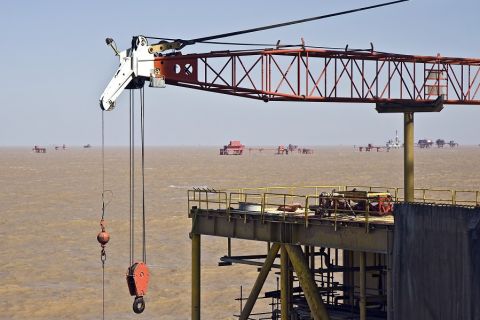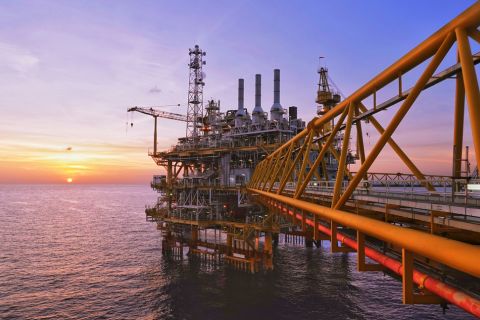OriginClear Inc., a provider of water treatment solutions, has partnered with an organization in China’s Shandong province for remediation of a shale gas site operated by the government-owned Sinopec Group, according to a news release.
The two- to three-week pilot at Sinopec’s Fuling shale gas site in Chongqing in southwest China is intended to qualify OriginClear’s Electro Water Separation (EWS) technology for integration into a multistage process designed to process hydraulic fracturing and flowback water for on-site reuse, OriginClear said in the release.
During the project, EWS technology will be used to remove total petroleum hydrocarbons and suspended solids from the wastewater, prior to a reverse osmosis treatment. Following confirmation of EWS performance and successful removal of contaminants, the water will be deemed suitable for reuse on this site’s hydraulic fracturing process, the release said. Hydraulic fracturing requires clean water to ensure proper dosing of the variety of chemicals being used in the process.
OriginClear Technologies (Hong Kong) signed a sales license agreement with Shandong Tong Heng Environmental Technologies on March 24.
“This opportunity to demonstrate our success at a site operated by a Top Three global oil and gas company will validate our technology and potential to disrupt the Chinese market,” said John-Louis “JL” Kindler, President of the OriginClear Technologies Division. “We intend to scale up our operations in China, with the support and sponsorship of provincial governments.”
Citing the United Nations, OriginClear said China only has 7% of the world’s freshwater supplies despite having a population of 1.35 billion, or 21% of the world’s population. One large contributing factor is China’s rapid economic growth, fueled by heavy water consumption for production processes. In addition, the country’s pollution problems also contribute to the freshwater supply shortage—60% of the country’s underground water is polluted.
Capex on industrial water and wastewater treatment in China is set to increase by nearly 25% over the next five years, reaching $6.8 billion in 2020, the release said.
Recommended Reading
TotalEnergies Starts Production at Akpo West Offshore Nigeria
2024-02-07 - Subsea tieback expected to add 14,000 bbl/d of condensate by mid-year, and up to 4 MMcm/d of gas by 2028.
E&P Highlights: Feb. 5, 2024
2024-02-05 - Here’s a roundup of the latest E&P headlines, including an update on Enauta’s Atlanta Phase 1 project.
CNOOC’s Suizhong 36-1/Luda 5-2 Starts Production Offshore China
2024-02-05 - CNOOC plans 118 development wells in the shallow water project in the Bohai Sea — the largest secondary development and adjustment project offshore China.
US Drillers Cut Oil, Gas Rigs for First Time in Three Weeks
2024-02-02 - Baker Hughes said U.S. oil rigs held steady at 499 this week, while gas rigs fell by two to 117.
Equinor Receives Significant Discovery License from C-NLOPB
2024-02-02 - C-NLOPB estimates recoverable reserves from Equinor’s Cambriol discovery at 340 MMbbl.




